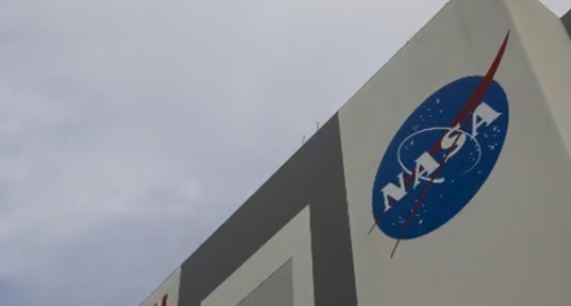Space debris accidents are still rare, but thy will increase over time as more and more launches are carried out. Still, just to calm those who panic, the probability of becoming the victim of such a crash is nearly zero. That doesn’t help this family though..
A Naples, Florida family is seeking $80,000 in damages from NASA after a piece of space debris unexpectedly crashed into their home. The incident, which occurred on March 8, 2024, involved a metallic cylinder from a cargo pallet previously jettisoned by the International Space Station in 2021. This debris punctured the roof and floor of the Otero family’s home while their son, Daniel, was present in the house. Fortunately, no injuries were reported, although the close call left the family shaken.
The law firm Cranfill Sumner, representing Alejandro Otero and his family, has filed a claim citing damages for non-insured property, business interruption, emotional distress, and costs associated with third-party assistance. The cylinder, weighing 1.6 pounds and measuring 4 inches by 1.6 inches, survived re-entry into Earth’s atmosphere and was later confirmed by NASA to be flight support equipment from the ISS after analysis at the Kennedy Space Center.
An American family is claiming more than $80,000 (P4.7 million) from NASA after a small piece of debris fell from space and smashed through the roof of their Florida home, a law firm said. | via @philstarlife
Click on the photo for the full story.https://t.co/dnEiWIDWw6
— The Philippine Star (@PhilippineStar) June 23, 2024
In a statement, the family’s attorney, Mica Nguyen Worthy, expressed relief that no physical injuries occurred but emphasized the potential severity of the incident, stating, “If the debris had hit a few feet in another direction, there could have been serious injury or a fatality.” This case seeks to establish a precedent for handling claims related to space debris impacts involving both private and public entities.
An American family is claiming more than $80,000 from NASA after a small piece of debris fell from space and smashed through the roof of their Florida home. On March 8, an object weighing just 700 grams hit Alejandro Otero’s home in Naples, Florida, making a hole in the roof. pic.twitter.com/YYPs8ERi8n
— Peter the Great Space Science☀️ (@Space_PHD) June 23, 2024
NASA has been given a six-month period to respond to the claim filed by the Otero family. This incident highlights the growing concerns surrounding space debris and its management, as objects re-entering Earth’s atmosphere can pose significant risks to people and property on the ground. The outcome of this case could influence future protocols and liability considerations for space agencies globally.
An American family is claiming more than $80 000 (about R1.44 million) from NASA after a small piece of debris fell from space and smashed through the roof of their Florida home, a law firm has said.https://t.co/eOn2CJTBsK
— News24 🇿🇦 (@News24) June 22, 2024
The legal pursuit by the Otero family not only seeks compensation for the tangible damages caused but also aims to address the broader implications of space debris and the responsibilities of space-faring entities. As space activity increases, so does the potential for similar incidents, making it crucial for agencies like NASA to refine their debris management strategies and for legal systems to clarify liability and compensation mechanisms in such cases.
Key Points:
i. A family in Naples, Florida, is seeking $80,000 in compensation from NASA after space debris from the International Space Station damaged their home on March 8, 2024.
ii. The debris, a metallic cylinder weighing 1.6 pounds, punched a hole through the roof and floor of the Otero family’s home, narrowly missing their son.
iii. NASA confirmed the object as part of its flight support equipment, which did not disintegrate upon re-entering Earth’s atmosphere.
iv. The family’s claim against NASA includes damages for non-insured property, business interruption, emotional distress, and costs for third-party assistance.
v. The case aims to set a precedent for handling future space debris claims and underscores the growing concern over space debris management and liability.
Susan Guglielmo – Reprinted with permission of Whatfinger News



